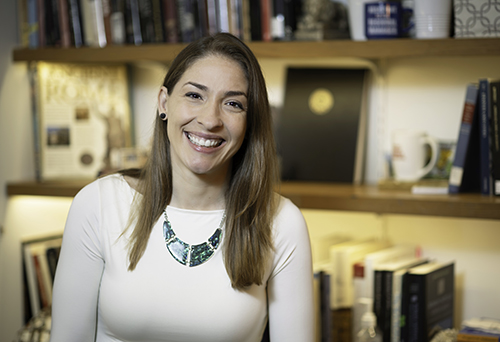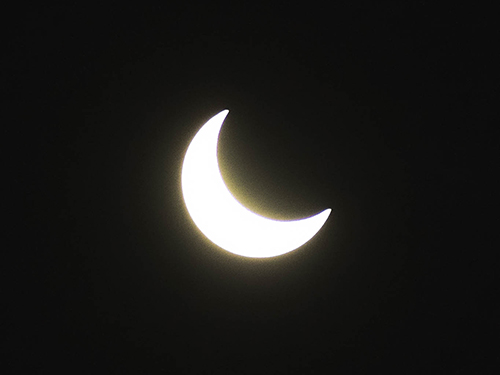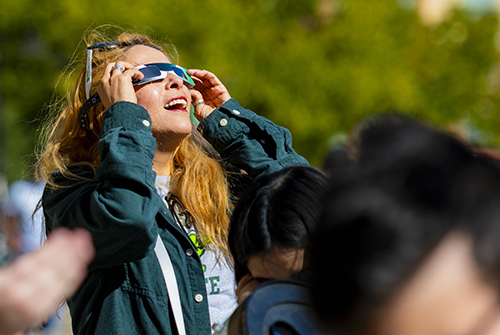
DENTON (UNT), Texas — With the total solar eclipse approaching, excitement grows within
the University of North Texas community as they prepare to witness the phenomenon alongside the broader region.
Zoe Ortiz, an assistant professor in UNT’s Department of History, sees the 2024 eclipse as an opportunity to reflect on how ancient civilizations
viewed these events.
“For ancient civilizations, like the Romans or Greeks, myth, legend and fate were
inseparable from math and science,” said Ortiz, whose research centers on the Roman
Empire and archaeology. “These concepts were closely interconnected for a significant
time throughout human history.”
During an archaeological dig, Ortiz learned about the Gabii Altar, an artifact featuring
zodiac symbols. It was discovered in the 18th century in the same city where Ortiz
was working. This led Ortiz to explore how the ancient Romans and other early civilizations
interpreted eclipses.

Many ancient societies viewed natural events as omens that could be interpreted positively
or negatively. The Greeks and Romans, for instance, relied on religious figures known
as augurs to interpret various occurrences, including natural disasters and the flight
patterns of birds. Augurs were also tasked with interpreting eclipses, which were
generally seen as bad omens.
Similarly, the ancient Assyrians intertwined science and mythology, mastering the
ability to forecast eclipse patterns by the 8th century B.C. They thought eclipses
were indicators of impending danger, particularly for their rulers.
“To protect their king, they would select a condemned convict to serve as a decoy
ruler for a three-month period,” Ortiz said.
However, eclipses weren’t always seen as dangerous. One notable instance took place
the night before the Battle of Gaugamela in 331 B.C. As Alexander III of Macedon prepared
to battle Emperor Darius III of Persia, a total lunar eclipse occurred. While Darius's
augurs interpreted the eclipse as a negative sign, Alexander's augurs saw it as an
early indication of his impending victory. Alexander indeed emerged successful, securing
his dominance over extensive territories in the ancient Mediterranean world. This
shift in power also had far-reaching implications for the future of science and astronomy.
“Alexander’s victory created a cultural and scientific diffusion across that geographical
space,” Ortiz said. “The Greeks started learning from eastern cultures about understanding
celestial bodies and their movements.”

Over time, ancient civilizations shifted their perception of eclipses from omens to
scientific phenomena. Early scientists improved their prediction skills and developed
tools like the Antikythera mechanism, discovered in a Greek shipwreck in 1900. This
ancient device, often considered the first computer, featured a dial capable of forecasting
solar eclipses through precise gear mechanisms. Dating back to the 2nd century B.C.,
researchers believe it served as a mechanical calendar for tracking celestial movements.
Though humanity's perceptions of eclipses have evolved significantly since ancient
times, Ortiz finds fascination in the shared traits between modern society and early
civilizations. She also emphasizes the educational value for students in studying
this era.
“Studying and understanding the ancient world is beneficial for everyone,” Ortiz said.
“By piecing together different aspects of ancient history to unravel its story — every
student can find something that interests them. We are all inheritors of the ancient
world.”